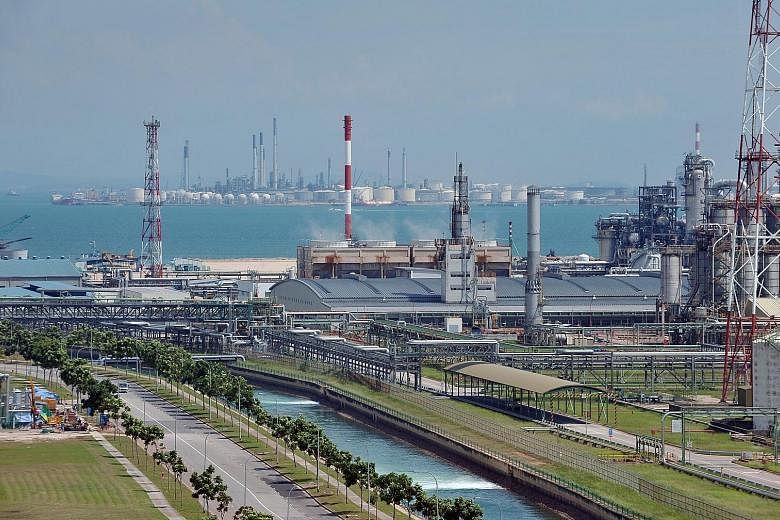Singapore is set to impose a carbon price as it looks to cut greenhouse gas emissions to meet its commitments under the Paris Agreement, Business Times has learnt.
The Government is now determining the timeline and what form of carbon pricing to take, according to the National Climate Change Secretariat (NCCS). Countries around the world have implemented some form of carbon pricing as they seek to reduce emissions in a cost-effective manner. Singapore, too, has been studying this policy option and monitoring such international developments for some time, said NCCS.
"Alongside current measures such as regulations, incentives and capability building, a carbon price can help improve energy efficiency, lower carbon emissions and promote low-carbon technology," said a spokesman in response to a BT query. "We are evaluating when and how best to implement carbon pricing in Singapore."
The move follows other policy initiatives the Government is planning, to cut the country's emissions intensity to 36 per cent below 2005 levels by 2030 - as it had pledged under the 2015 Paris climate change pact.
It has set a target of ramping up improvement in energy efficiency in the manufacturing sector by 1 to 2 per cent a year from 2020 to 2030. Last November, it also said that it is planning to tighten energy monitoring and reporting requirements for large industrial players. The industrial sector, which accounted for 59 per cent of Singapore's greenhouse gas emissions in 2012, is expected to take most of the weight of a carbon price.
The petroleum refining, chemicals and semiconductor sectors made up the bulk of these emissions. The largest refining and petrochemical complexes in Singapore are owned by Royal Dutch Shell and ExxonMobil.
Shell and five other European oil majors, such as BP and Statoil, had during the run-up to the Paris summit in 2015 called on governments to introduce a carbon price. This, they said, would discourage high-carbon options and help to stimulate investments in the right low-carbon technologies.
ExxonMobil has shown support for a carbon tax. "We are committed to working with the Singapore Government on this important issue to find solutions that help reduce greenhouse gas emissions while ensuring Singapore's long-term competitiveness," said an ExxonMobil spokesman, adding that the group is taking action to reduce emissions in Singapore through energy-efficiency initiatives such as building cogeneration plants.
Carbon pricing can take either the form of a carbon tax which puts a price on each tonne of carbon produced, or an emissions trading scheme which uses market mechanisms to price carbon.
The Singapore Government had indicated in as early as 2010 that carbon pricing is an option. Then, Prime Minister Lee Hsien Loong revealed that the Government already worked with a shadow carbon price.
"If there is a global regime to curb carbon emissions and that means that Singapore will have to reduce our own emissions more sharply than we are doing now, in order to comply with international obligations, then we will have to make the carbon price explicit, to send the right price signals," he said in a speech at the Singapore International Energy Week in 2010.
In the Climate Action Plan unveiled last July, the Government said that it will be studying the need to price carbon to enhance energy-efficiency efforts across all sectors.
"A carbon price would send appropriate price signals to encourage changes in energy consumption, provide market incentives for the adoption of energy-efficient technologies and low-carbon solutions, and stimulate growth in green industries," said NCCS in the document.
But a carbon price will incur costs, affecting Singapore's competitiveness, it also noted. "Its overall impact will have to be studied."
The shift in Singapore's position comes as the idea of a carbon price gains increasing popularity with other governments. About 40 national jurisdictions and over 20 cities, states and regions are already putting a price on carbon, according to the World Bank. Carbon prices range from about US$1 (S$1.40) per tonne of carbon emissions in Poland and Mexico, to US$137 per tonne in Sweden, a World Bank report last October showed.
In Asia, South Korea had started a national emissions trading scheme in 2015, while China aims to roll out a nationwide emissions trading system by the second half of this year.
BUSINESS TIMES

